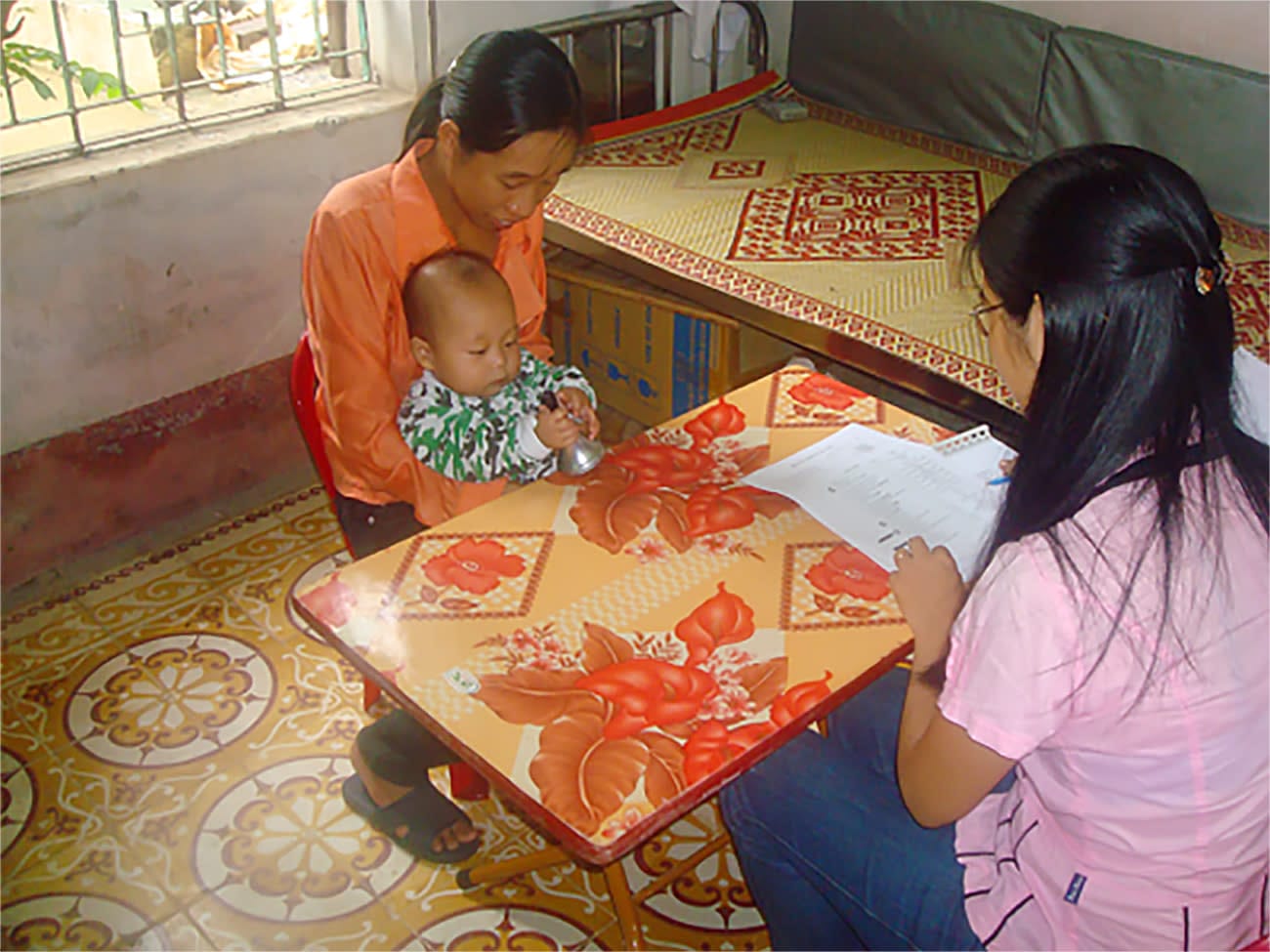
Early childhood development is now a global priority.
More than 40 per cent of children aged under five who live in disadvantaged circumstances, especially in low- and middle-income countries (LMICs), never reach their lifetime developmental potential.
Risks accrue from conception and have an especially powerful impact from then until the baby turns two – the first 1000 days of life.
During pregnancy, women in LMICs experience malnutrition, demanding physical work in subsistence agriculture, gender-based violence and inadequate access to healthcare and social protection, at much higher rates than in high-income nations, says Jane Fisher, now Finkel Professor of Global Health in the School of Public Health and Preventive Medicine at Monash.
Each of these, she says, exerts adverse effects on foetal growth.
Mental health factors
Mental health problems, in particular depression and anxiety experienced by women who are pregnant or who have recently given birth, were first recognised in published clinical descriptions in the 1850s.
It took more than a century for these problems to be investigated more systematically, but landmark studies in England and America in the 1960s established that about one in 10 women in these nations experienced postpartum mental health problems.
“They were once argued to be rare in LMICs, because traditional care involving support from other women, rest and seclusion, rituals and gift-giving were protective,” Professor Fisher said.
Nearly 20 years ago, Professor Fisher led, with colleagues in Vietnam, one of the first systematic investigations of this aspect of women’s health.
They assessed 506 women attending a baby clinic in Ho Chi Minh City and found that more than 30 per cent met international criteria for a postnatal mental health problem, with one in five having thoughts of not wanting to live any more.

When published it was met with disbelief, but it was followed by other studies that drew similar conclusions – that perinatal mental health problems were two to three times more common among women in LMICs than in high-income countries.
Professor Fisher and colleagues completed the first systematic review of the then available evidence from all low and lower-middle income countries, published in The Bulletin of the World Health Organisation in 2012.
It found that, compared to women without mental health problems, women with them were more likely to be experiencing gender-based violence, lack of reproductive autonomy, lack of empathy from an intimate partner; gender-role restrictions, excessive workloads; lack of emotional and practical support from mothers; and pressure from the birth of a daughter in settings where sons are preferred.
The problems were most common among the poorest women with the least access to any health services.
At the same time, evidence was growing that restricted foetal growth, premature birth and compromised early childhood development were more common among the infants of women with, rather than without, perinatal mental health problems.
In a collaborative research program in Vietnam, Professor Fisher and her colleagues showed that at six months of age, infants whose mothers had a pregnancy mental health problem, and anaemia, had significantly lower cognitive and motor development.
The social and emotional development of these babies was shown to be significantly poorer if their mothers were providing less affectionate care due to a postnatal mental health problem.
As toddlers, they were significantly more likely to be stunted if their mothers had experienced a perinatal mental health problem, Professor Fisher said.
Framework established
The World Health Organisation and UNICEF acted on this accruing evidence and the priorities of the United Nations Sustainable Development Goals 2016-30 by enhancing international policies regarding young children.
The Nurturing Care Framework for Early Childhood Development: Linking Survive and Thrive to Transform Health and Human Potential was launched at the World Health Assembly in Geneva in May this year. It focuses on the psychological needs and mental health of mothers so that they’re able to provide nurturing care.
Professor Fisher has been appointed chair of the Guideline Development Group for the Nurturing Care Framework, which is translating the evidence to provide implementation guidance to all 194 UN member nations.
The International Marcé Society for Perinatal Mental Health is the world’s expert professional society for research and clinical practice about the mental health of women who are pregnant or have recently given birth, their families and their infants. It was established in 1980 and Professor Fisher was elected President (2016 – 2018) in a worldwide ballot in 2014.
The Society’s biennial conferences had all been held in high-income nations but Professor Fisher argued that, given the evidence about the unequal distribution of prevalence, the 2018 Conference should be held in a lower-middle income country.
The Conference was held at the National Institute of Mental Health and Neurosciences in Bengaluru India, from September 26-28, 2018, in close partnership with the Institute’s Director of Psychiatry Professor Prabha Chandra.
Contrary to the predictions of some members of the Society, the conference was extraordinarily successful, Professor Fisher said, attracting 630 registrants from 31 countries, many of whom had never been able to attend one before.
“There was widespread acclamation about the quality of science and exceptional opportunity for mutual learning. Participants described it as ‘transformative’, and ‘pivotal’ in bringing people from the global north and the global south together for effective global dialogues,” she said.
With funding from the National Health and Medical Research Council and Grand Challenges Canada’s Saving Brains Initiative, she’s also leading a team from Monash’s School of Public Health and Preventive Medicine, the Research and Training Centre for Community Development in Hanoi, the Doherty Institute, the Burnet Institute and UNICEF New York in a trial to improve the cognitive development of children when they’re aged two.
Find out more about this topic and study opportunities at the Graduate Study Expo





